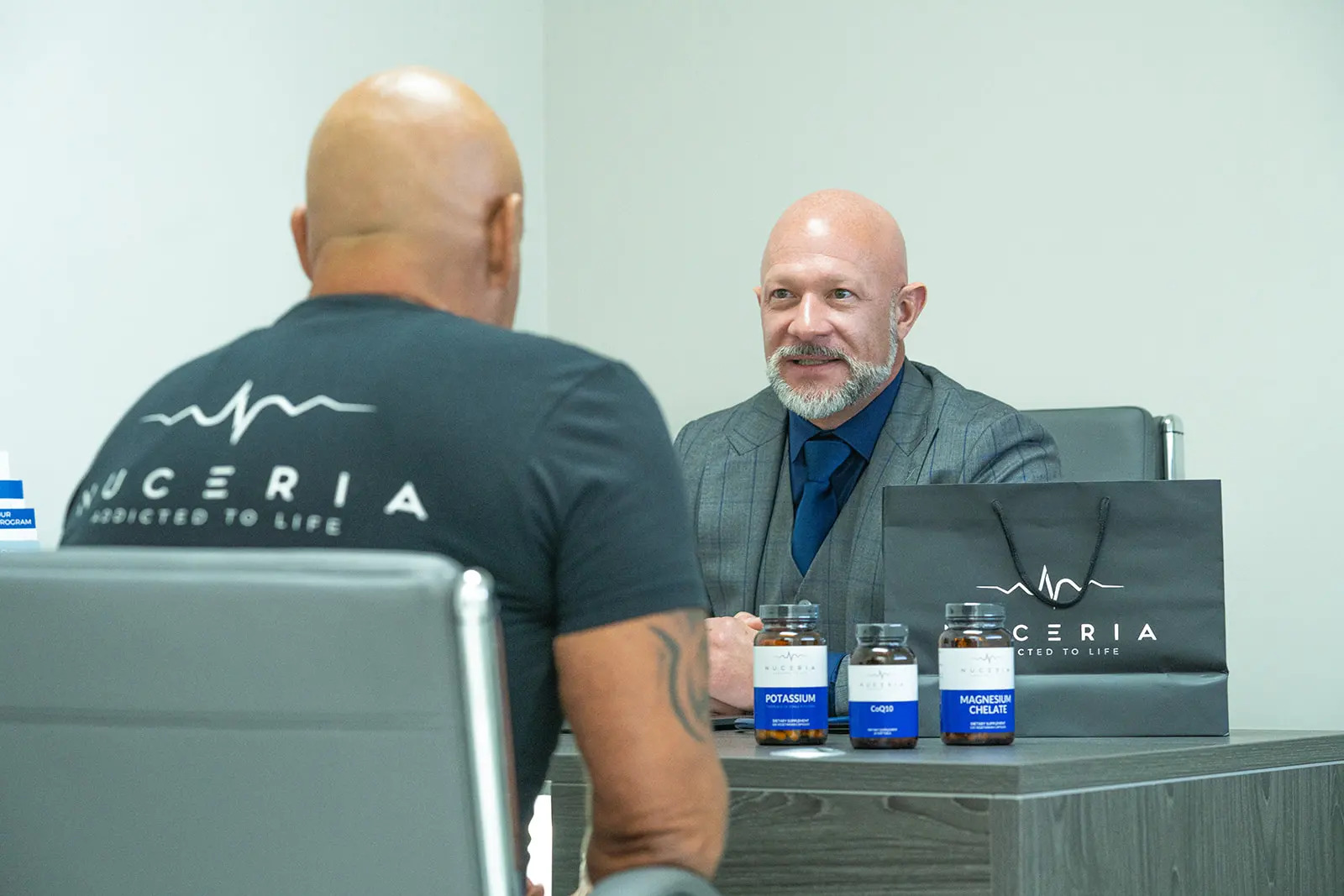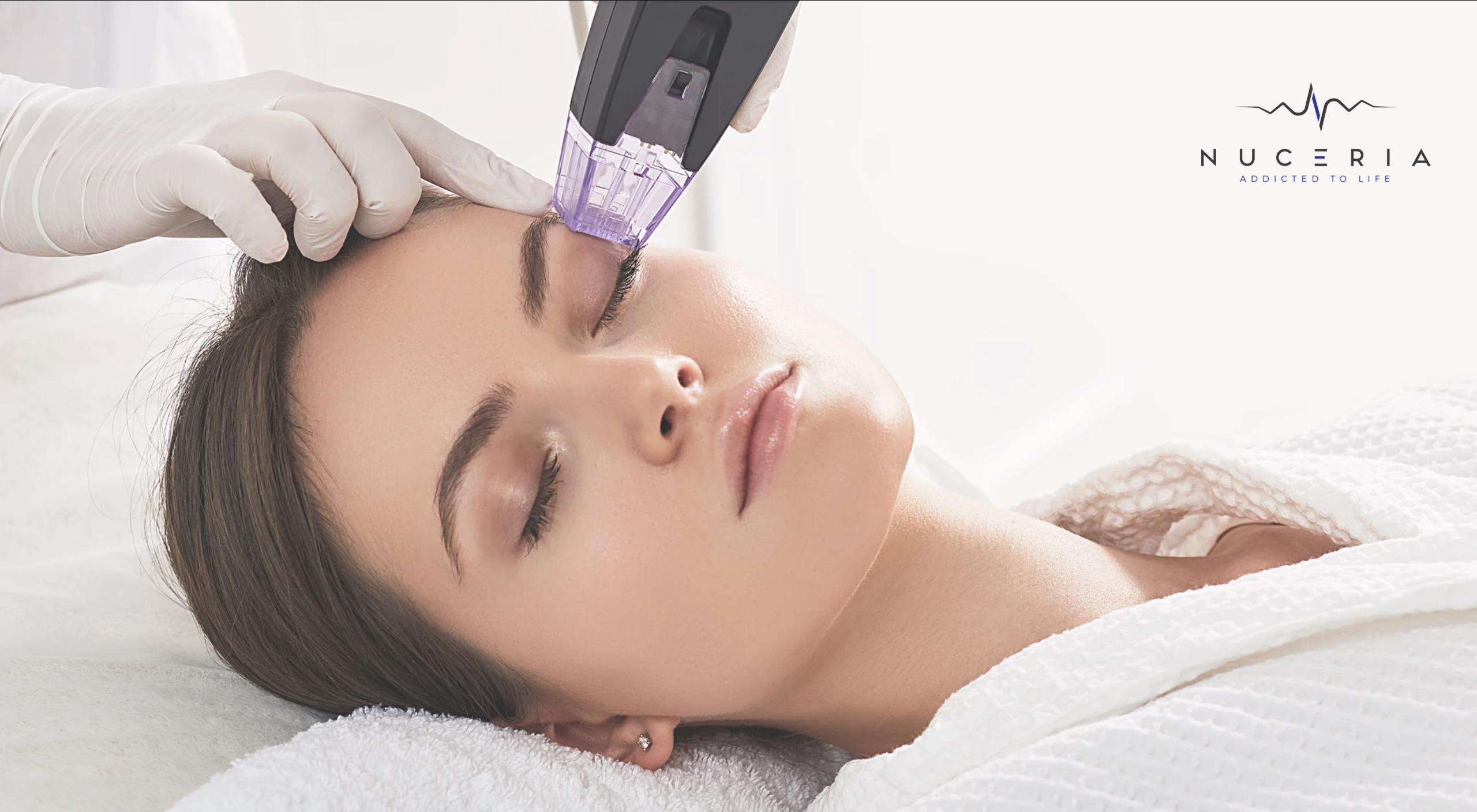Testosterone Therapy for Andropause: Benefits and Risks
As men age, their testosterone levels naturally decline, with an average decrease of about 1% annually after age 40. While most older men maintain normal testosterone levels, approximately 10% to 25% experience significantly low levels.
This decline in testosterone can lead to andropause, which can affect physical, emotional, and sexual health.
With more men seeking solutions for low testosterone, understanding the benefits and risks of testosterone therapy for andropause is crucial.
Understanding Andropause
Andropause, or male menopause, generally affects men over the age of 40. Symptoms may include:
- Fatigue
- Depression
- Reduced libido
- Erectile dysfunction
- Muscle loss
- Weight gain
These symptoms are associated with a gradual decrease in testosterone, impacting physical and mental well-being.
Benefits of Testosterone Therapy
(TRT) aims to restore normal testosterone levels, potentially alleviating many andropause symptoms. The benefits can be significant:
Improved Mood and Mental Health
Studies show testosterone therapy reduces depression and improves overall mood. Men undergoing treatment report enhanced energy and motivation.
Enhanced Libido and Sexual Function
Boosted testosterone levels can improve libido and sexual performance, strengthening relationships and enhancing quality of life.
Increased Muscle Mass and Strength
Testosterone is vital for muscle development. Therapy can help rebuild muscle mass and strength, promoting a healthy lifestyle.
Bone Density Improvement
Testosterone plays a role in preserving bone thickness, which decreases the likelihood of experiencing osteoporosis and bone breaks.
Better Cognitive Function
Some research suggests that testosterone therapy may enhance cognitive functions like memory and concentration.
Risks and Considerations
While testosterone therapy offers many benefits, it's essential to consider the potential risks and side effects:
Cardiovascular Risks
Some studies indicate that (TRT) may increase the risk of heart attacks and strokes, especially in older men. Discuss these risks with your healthcare provider.
Prostate Health
Testosterone therapy can lead to an enlarged prostate and may increase the risk of prostate cancer. Regular monitoring is essential.
Sleep Apnea
Testosterone therapy can worsen sleep apnea, a severe sleep disorder. Men with sleep apnea should be cautious about this treatment.
Skin Reactions
Topical testosterone treatments can cause skin reactions such as irritation and acne.
Fluid Retention
Testosterone therapy may cause fluid retention, leading to swelling in the limbs and other areas.
Who Can and CanNot Be a Candidate for Testosterone Therapy?
Not everyone is a suitable candidate for testosterone therapy. Key considerations include:
Potential Candidates:
- Men with Confirmed Low Testosterone Levels: Those diagnosed with low testosterone levels through blood tests and experiencing andropause symptoms.
- Men in Good General Health: Candidates should generally be healthy and not suffer from severe conditions that testosterone therapy could exacerbate.
- Men Without Prostate or Breast Cancer: Men without a history of prostate or breast cancer, as testosterone, can influence the growth of certain cancers.
Non-Candidates:
- Individuals diagnosed with Prostate or Breast Cancer are usually advised against testosterone treatment, as it may increase the risk of cancer progression.
- Men with Severe Heart or Liver Disease: Those with severe heart or liver disease should avoid testosterone therapy, as it can worsen these conditions.
- Men with Untreated Sleep Apnea: Testosterone therapy can exacerbate untreated sleep apnea. It is crucial to address this condition before considering hormone treatment.
- Men with Elevated Red Blood Cell Counts: High red blood cell counts can be a contraindication, as testosterone therapy can further increase these levels, leading to complications.
Treatment Recommendations for Older Men with Low Testosterone
When considering testosterone therapy, follow these recommendations to maximize benefits and minimize risks:
- Consult a Healthcare Professional
- Treatment Options
- Monitor Regularly
- Evaluate Overall Health
- Lifestyle Adjustments
Before starting testosterone therapy, thoroughly evaluate the potential benefits and risks with a healthcare professional. Blood tests are typically required to confirm low testosterone levels and monitor therapy progress. Regular follow-ups are essential to ensure the therapy's safety and effectiveness.
Request an appointment here: https://mynuceria.com or call Nuceria Health at (305) 398-4370 for an appointment in our Miami office.
Check out what others are saying about our services on Yelp: Wellness Center in Miami, FL.







